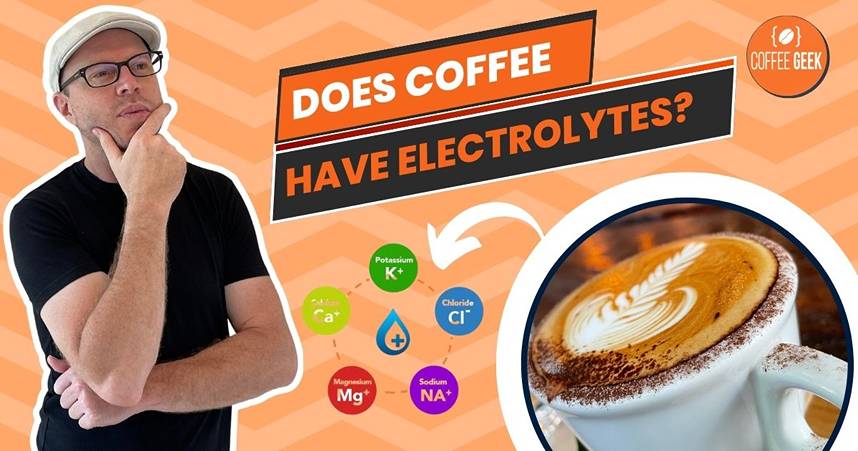Coffee, a popular beverage among people of all ages, is known for its ability to enhance alertness and provide an energy boost. However, when it comes to electrolytes, the picture becomes less clear.
Electrolytes such as sodium, potassium, calcium, and magnesium are vital for maintaining balance within the body, enabling various processes, including nerve and muscle function, blood pressure regulation, and hydration.
So, does coffee have electrolytes?
Short answer is no, but it’s complicated for many reasons and it’s best to read on as to why it’s the case.
Some sources suggest that coffee does contain a small amount of electrolytes, though it may not be enough to substantially impact the body’s electrolyte balance.
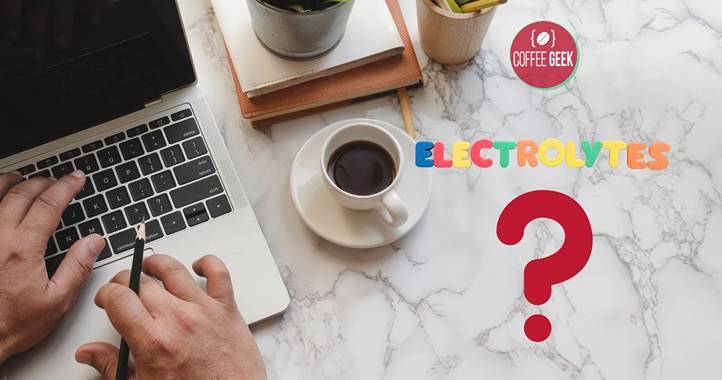
The primary concern with coffee consumption related to hydration is its diuretic effect, which can lead to an increased need for water and, possibly, electrolytes if consumed in excessive amounts.
While coffee may not be a significant source of electrolytes, there are other foods and beverages that are more abundant in these essential minerals, such as milk, fruit juices, and electrolyte-rich sports beverages.
Key Takeaways
Coffee contains a small amount of electrolytes but might not significantly impact body’s electrolyte balance.
Consuming excessive amounts of coffee can increase the need for water and possibly electrolytes due to its diuretic effect.
Electrolyte-rich foods and beverages, like milk and fruit juices, are better options for replenishing electrolytes.
- Key Takeaways
- Understanding Electrolytes
- The Role of Electrolytes in the Human Body
- Does Coffee Have Electrolytes?
- Coffee and Hydration
- Electrolyte-Rich Foods and Drinks
- Comparative Analysis: Coffee and Sports Drinks
- Potential Health Concerns Related to Coffee and Electrolytes
- Moderation and Balanced Diet
- Concluding Thoughts
- Frequently Asked Questions
Understanding Electrolytes
Electrolytes are minerals that play a crucial role in maintaining your body’s balance and optimal functioning.
They conduct electrical impulses when dissolved in water, allowing essential processes like muscle contractions and nerve signaling to occur.
Some common electrolytes include sodium, potassium, chloride, magnesium, calcium, phosphate, and phosphorus.
In your daily life, you may encounter situations that affect your electrolyte levels, such as prolonged exercise, illness, or excessive sweating.
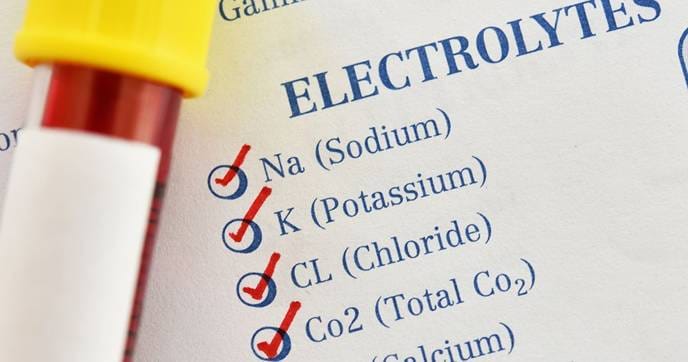
To keep your body running smoothly, it’s essential to replenish these minerals through the food and consume sufficient fluid, beverages you consume.
Sodium is an essential electrolyte that helps regulate fluid balance and nerve function in your body.
It is commonly found in table salt and processed foods, but it’s crucial to monitor your intake, as excessive sodium consumption can lead to high blood pressure, disturb fluid balance and other health issues.
Potassium excretion plays a vital role in maintaining proper heart function and balancing the effects of sodium. Foods rich in potassium include bananas, potatoes, and leafy greens.
Maintaining a proper balance between sodium and potassium is crucial for your overall health.
Chloride, another vital electrolyte, works closely with sodium to maintain fluid balance and helps produce digestive juices in the stomach.
You can find chloride in sources such as table salt and some vegetables like celery and tomatoes.
Magnesium is an essential mineral involved in over 300 bodily processes, including muscle and nerve function, energy production, and the regulation of other essential electrolytes.
Seeds, nuts, green vegetables, and whole grains are excellent sources of magnesium.
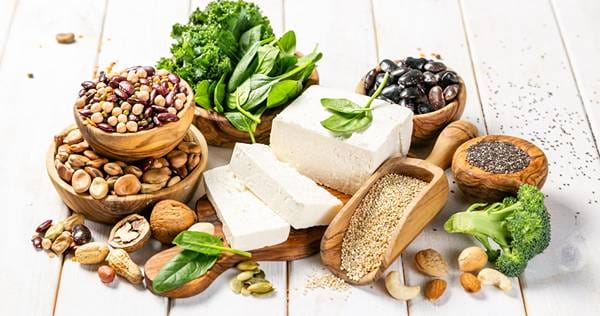
Calcium, well-known for its role in building strong bones and teeth, is another crucial electrolyte. It also aids in muscle function, nerve signaling, and blood clotting.
Dairy products, dark leafy greens, and fortified plant-based milk are good sources of calcium.
Phosphate and phosphorus are two forms of the same mineral, with phosphate being the most common form in the body. They play a role in bone and teeth health, energy production, and cellular function.
Foods rich in phosphate and phosphorus include dairy products, meat, fish, and whole grains.
In conclusion, understanding the roles and sources of these essential electrolytes can help you maintain a well-balanced diet and support your body’s overall health.
Remember to monitor your intake, stay hydrated, and consume a variety of nutrient-dense foods to keep your electrolyte levels in check.
The Role of Electrolytes in the Human Body
Electrolytes are essential minerals that play a crucial role in maintaining your body’s functions.
They are vital for regulating your hydration, fluid balance, and pH levels. Additionally, electrolytes contribute to various processes, including muscle contractions, nerve impulses, and maintaining your heart rate.
As you consume fluids and nutrients, your body acquires the electrolytes needed to maintain optimal functionality.
Some of the most important electrolytes include sodium, potassium, chloride, calcium, magnesium, and phosphate.
Your body requires these minerals for proper functioning and to maintain your overall health.
When you exercise or engage in any activity that causes you to sweat, you lose electrolytes through perspiration.
Ensuring proper electrolyte balance is essential for maintaining hydration and preventing muscle cramps.
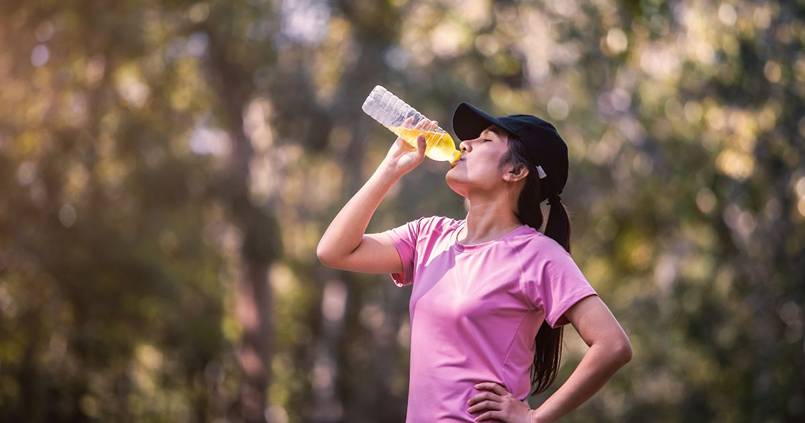
If you’re experiencing muscle cramps or weakness during or after physical activities, it may be a sign that your electrolyte levels are low.
Your nervous system also relies on electrolytes to transmit nerve impulses. Potassium, for instance, is essential for proper muscle contractions, including the control of your heart rate.
An imbalance in potassium levels can lead to irregular heartbeats or even serious heart conditions.
Your kidneys play a key role in maintaining electrolyte balance by regulating the amount of fluid in your body.
When you urinate, you also lose electrolytes, so it’s important to stay hydrated by drinking water and consuming electrolyte-rich foods or beverages.
Your thirst is a crucial signal that helps you maintain your water balance and electrolyte levels.
Lastly, electrolytes help to balance the pH levels in your body, which ensures that your body can function at its best.
An imbalance in your body’s pH may lead to respiratory difficulties, fatigue, and even digestive issues.
In conclusion, maintaining a balance of electrolytes in your body supports proper hydration, muscle function, nerve impulses, and other essential functions.
Pay attention to your thirst and ensure you consume a balanced diet to help your body stay healthy and functioning optimally.
Does Coffee Have Electrolytes?
As a coffee enthusiast, or habitual coffee drinkers you might be curious if your favorite beverage contains electrolytes.
Electrolytes are essential minerals such as sodium, potassium, and magnesium, found in our body’s blood, tissues, and other fluids, to maintain proper nerve and muscle functions, hydration, and blood pressure regulation.
While coffee is a popular source of caffeine, a stimulating compound that occurs naturally in various plants like coffee beans and tea leaves, it does not contain significant amounts of electrolytes.
The primary components of coffee are water, caffeine, trace minerals, and organic compounds that contribute to its taste and aroma.
Having said that, it’s important to note that caffeine can have a diuretic effect on your body, which means it might make you excrete more water through urine.
However, it is a mild diuretic and is not likely to lead to dehydration. To maintain proper hydration, it is essential to drink water alongside your coffee, especially if you consume it in large quantities.

It is worth mentioning that coffee is low in calories, with a typical 8-ounce black coffee containing only about 2 calories and no sugars.
When you add creamers, flavorings, or sugars to your coffee, this can increase the caloric content and add additional sugars.
So, while you enjoy your coffee, be mindful of the additives you use, as they might affect the overall nutrition of your favorite drink.
In conclusion, coffee doesn’t contribute to your electrolyte intake. However, it is still a valuable source of antioxidants and can be part of a balanced diet when consumed in moderation.
To ensure optimal hydration and electrolyte balance, incorporate other electrolyte-rich foods and beverages into your daily routine, such as fruits, vegetables, dairy products, and electrolyte-enhanced sports beverages.
Coffee and Hydration
Maintaining proper hydration is essential for your body’s overall health, and you might wonder if coffee contributes to that.
It turns out that caffeinated drinks, such as coffee, can help meet your daily fluid needs, but water remains the best liquid for staying hydrated.
When you consume coffee, it’s essential to take the overall balance of fluids in your body into consideration. Factors such as dehydration, fluid intake, water balance, and the effects on urine production all play a role in this process.
Drinking an excessive amount of caffeine may have diuretic effect, causing increased urine volume and potentially leading to dehydration if not properly balanced with water intake.
However, studies have shown that moderate daily coffee intake, consumption does not cause significant imbalances in electrolytes.
During physical activities or in hot environments, you lose fluid and electrolyte excretion through sweating. Electrolytes are crucial for maintaining proper hydration levels, nerve function, and muscle performance.
While coffee may not be a significant source of electrolytes, it can still contribute to habitual coffee drinkers overall fluid intake, complementing water consumption to help maintain optimal hydration levels.
In conclusion, you can safely include coffee as part of your daily fluid intake without experiencing significant dehydration.
However, it’s crucial not to rely solely on consuming caffeinated beverages for hydration and to maintain a balance between water and coffee consumption.
Remember that water should always be your primary source of hydration to support your body’s various functions and maintain proper water balance.
Electrolyte-Rich Foods and Drinks
When looking to replenish your electrolytes, there are various foods and drinks that can help you achieve this. They include fruits, vegetables, and beverages like coconut water, fruit juices, and smoothies.
Fruits are a great natural source of electrolyte excretion, with options such as watermelon, oranges, and bananas being particularly rich in potassium.
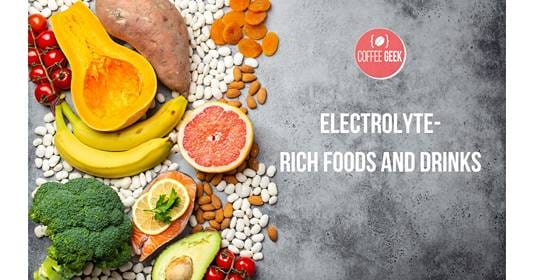
Consuming these fruits in different forms like watermelon juice, orange juice, and cherry juice can help you maintain proper electrolyte balance.
Vegetables are another essential source of electrolytes.
Leafy greens like spinach and kale, as well as other veggies like avocados, sweet potatoes, and broccoli, contain beneficial minerals such as calcium, magnesium, and potassium.
Including these vegetables in your diet ensures that you receive an ample dose of electrolytes.
A popular choice for electrolyte replenishment is coconut water, which naturally contains electrolytes like potassium, sodium, calcium, and magnesium.
It is a refreshing and hydrating drink, making it ideal for post-workout recovery or for staying energized throughout the day.
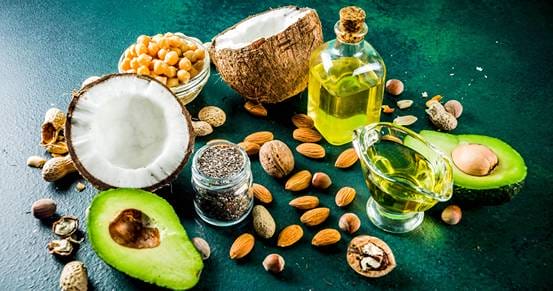
Smoothies offer a convenient way to incorporate various electrolyte-rich ingredients into a single drink.
By blending fruits, vegetables, and even yogurt, you can create a delicious and healthy beverage packed with essential minerals.
Opt for whole foods whenever possible, as they retain more nutrients compared to processed options.
In summary, prioritizing electrolyte-rich foods and drinks such as fruits, vegetables, coconut water, and smoothies can help you maintain proper electrolyte balance while promoting overall health and wellness.
Comparative Analysis: Coffee and Sports Drinks
When considering the role of beverages in your athletic performance and hydration, it’s important to compare the benefits of both caffeinated beverages and sports drink.
Many athletes might wonder whether coffee has electrolytes and how it stacks up against popular sports beverages like Gatorade or Powerade.
While coffee is not typically known for its electrolyte content, it does provide some benefits to those who engage in regular exercise.
Although it’s not a primary source of electrolytes like sodium, potassium, or magnesium, coffee does have a stimulating effect on the central nervous system, which can provide an energy boost during your workout.
Sports drinks, on the other hand, are specifically formulated to replenish electrolytes lost through sweat during exercise.
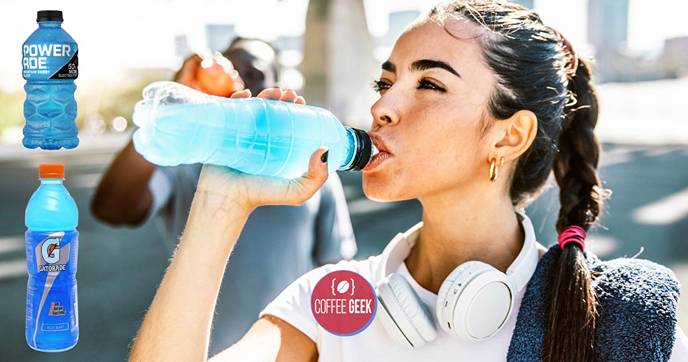
Brands like Gatorade and Powerade contain key electrolytes such as sodium, potassium, and magnesium, which are essential for maintaining proper hydration and muscle function.
A study showed that sports beverages can provide a higher hydration index than water for young adults during exercise.
While coffee may not offer the same electrolyte replenishment as sports drinks, it should not be disregarded entirely.
Consuming moderate amounts of coffee before a workout may help enhance your alertness and focus, possibly leading to a more productive exercise session.
However, when it comes to hydration and electrolyte replacement, sports beverages like Gatorade or Powerade are the superior choice.
Keep in mind that excessive high caffeine intake, typically found in energy drinks, may negatively impact your hydration.
It is essential to strike a balance between harnessing the benefits of caffeine content while also maintaining proper hydration levels by incorporating sports beverages and water into your workout routine.
In conclusion, coffee can offer stimulating benefits, but sports beverages are specifically designed to support hydration and athletic performance and should be your go-to choice when engaging in intense physical activities.
Potential Health Concerns Related to Coffee and Electrolytes
As you consume coffee, it is essential to be aware of potential health concerns related to coffee and electrolytes.
Drinking coffee might lead to dehydration and electrolyte imbalance, which could result in a series of symptoms and complications.
When your body experiences electrolyte imbalances, you might encounter symptoms such as fatigue, confusion, seizures, headaches, and nausea.
In severe cases, an imbalance in electrolytes, like hyponatremia (low sodium levels), can even be life-threatening.
Caffeine toxicity is another potential concern related to caffeinated drinks consumption. High levels of pure caffeine can lead to negative side effects like vomiting, high blood pressure, and increased heart rate.
Moderate your caffeine intake to avoid these risks and consider talking to a healthcare professional if you experience ongoing symptoms or are unsure about your limit Mayo Clinic.
While enjoying your daily cup of coffee, consider the risks associated with excess high caffeine intake and electrolyte imbalances.
Stay vigilant of symptoms and prioritize maintaining proper hydration and electrolyte levels to ensure your overall health.
Moderation and Balanced Diet
Incorporating coffee into your diet can be beneficial when consumed in moderation. Drinking 1 to 2 cups daily may even offer some health benefits, such as a reduced risk of type 2 diabetes.
However, it is important not to forget the importance of maintaining a balanced diet.
A balanced diet is essential for providing your body with the vital nutrients it needs to function properly. It includes a variety of foods from different food groups, such as fruits, vegetables, grains, protein sources, and healthy fats.
Remember, coffee should not be viewed as a replacement for essential nutrients and should be consumed moderation.
Protein is a crucial macronutrient that helps build and repair tissues, while iron is essential for transporting oxygen in the blood.
Both protein and iron can be obtained from animal sources, such as meat and fish, or plant-based sources, like beans, lentils, and fortified cereals for a vegan diet.
Electrolytes, such as potassium, calcium, and magnesium, are necessary for nerve and muscle function, as well as blood pressure regulation.
Obtaining these electrolytes from natural food sources, like spinach, almonds, and bananas, is essential for maintaining balance and preventing dehydration.
Vitamins, particularly vitamins A, C, and E, play a vital role in maintaining good health. Adequate vitamin levels can be achieved by consuming a variety of colorful fruits and vegetables, nuts, seeds, and whole grains.
Coffee in moderate amounts can be a part of a healthy diet, but it is crucial to prioritize a balanced diet for optimal health.
Remember to emphasize a range of nutrient-rich foods, including proteins, healthy fats, carbohydrates, vitamins, and minerals, to ensure your body functions at its best.
| Question | Answer |
|---|---|
| Does coffee contain electrolytes? | Yes, in small amounts |
| Which electrolytes are in coffee? | Potassium and magnesium |
| How much potassium is in a cup of coffee? | Approximately 116 mg |
| How much magnesium is in a cup of coffee? | Approximately 6 mg |
| Can coffee be considered a good source of electrolytes? | No, it’s not a significant source |
| Should coffee be relied on for electrolyte replenishment? | No, better sources are available |
Concluding Thoughts
When considering whether coffee has electrolytes, it is important to note that coffee itself does not inherently contain significant amounts of electrolytes, such as sodium, potassium, and magnesium.
However, certain coffee products may be formulated with added electrolytes to help combat dehydration and support overall hydration levels.
While caffeine ingestion has been suggested to affect hydration and electrolyte balance, a 2014 study noted that caffeine content does not seem to significantly impact fluid balance or hydration status in healthy adults who regularly drink coffee.
As such, your regular cup of coffee may not be a primary source of electrolytes, but it is also unlikely to cause severe electrolyte imbalances.
To ensure you maintain proper electrolyte levels, focus on consuming a balanced diet with a variety of whole foods, such as fruits, vegetables, and whole grains, which are known to be rich in essential electrolytes.
Alternatively, you can consider switching to a specially formulated coffee product that is designed to provide electrolytes and promote hydration.
Remember, maintaining optimal hydration and electrolyte balance is crucial for supporting overall health and well-being.
While your daily coffee habit may not be a significant source of electrolytes, it is crucial to prioritize a well-rounded diet and consider other hydration strategies to support your needs.
Frequently Asked Questions
Is coffee hydrating or dehydrating?
Coffee contains caffeine, which is considered a mild diuretic. However, moderate caffeinated drinks consumption is unlikely to cause significant dehydration.
The water content in coffee can help to offset any potential diuretic effects. It is still important to keep your daily water intake sufficient alongside your caffeinated drinks consumption.
What has electrolytes?
Electrolytes can be found in various foods and drinks, such as fruits, vegetables, nuts, and dairy products. Electrolytes are also present in sports beverages, coconut water, and even some types of coffee.
Electrolytes play an essential role in maintaining proper nerve and muscle function.
Electrolytes vs caffeine
Caffeine and electrolytes serve different purposes in the body. Caffeine acts as a stimulant, increasing alertness and reducing fatigue.
Electrolytes, on the other hand, are minerals such as sodium, potassium, and magnesium which are crucial for maintaining fluid balance, nerve function, and muscle contractions.
Beverages containing both caffeine and electrolytes could offer the perks of caffeine consumption while compensating for its mild diuretic effects.
How much does coffee count as water intake?
Coffee does contribute to your daily water intake, but it should not be considered a replacement for water.
While coffee intake can provide some h
ydration, the exact amount depends on factors like the size of the serving and the concentration of caffeine ingestion. It is wise to consume water alongside coffee and preferably reach for water as the primary source of hydration.
Does tea and coffee count towards water intake?
Yes, tea and caffeinated coffee can count towards your daily water intake.
Both beverages contain water, which can contribute to overall hydration.
However, like with caffeinated drinks consumption, it is essential to prioritize water as the primary source of hydration to achieve optimal fluid balance.
What electrolytes does caffeine deplete?
Caffeine content may interfere with the absorption of certain electrolytes like calcium, potassium, and magnesium. It could also lead to an increased loss of these electrolytes through urine.
To counter these effects, focus on consuming a balanced diet rich in foods containing these essential minerals, such as leafy greens, bananas, nuts, and fortified dairy products.

